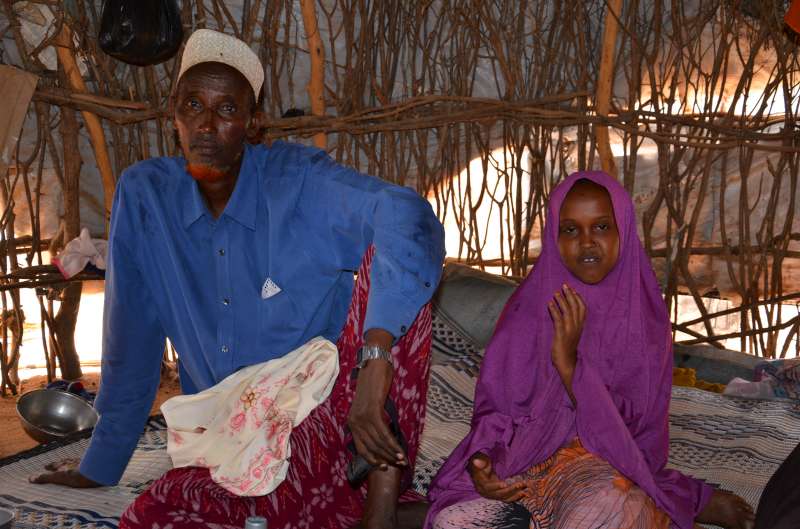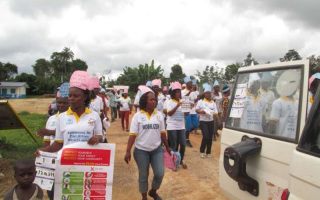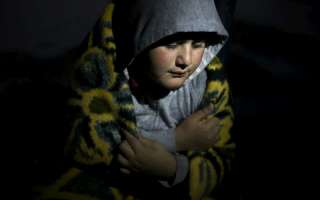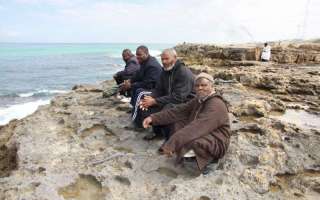
Hussein Farah and one of his 10 children sit in the shade of their shelter in Dagahaley refugee camp, Dadaab. He says it is tough to feed his children, even with full rations. © UNHCR/D.Mwancha
NAIROBI, Kenya, November 21 (UNHCR) – The UN refugee agency has sought to allay the concerns of hundreds of thousands of refugees facing food ration cuts in northern Kenya and stressed that these are not linked to the repatriation of Somalis.
“We call for calm in camps. The reduction of food rations is purely as a result of funding constraints and should not in any way be linked to the planned pilot project that will support refugees spontaneously returning to Somalia,” Raouf Mazou, UNHCR’s representative in Kenya, said in Nairobi this week.
He also stressed that UNHCR and the World Food Programme (WFP) were working together around the clock to resolve the food problem for a total 490,000 refugees in Kakuma and Dadaab camps. “We did not expect that we would reach this point but we are making frantic efforts with our partners to secure additional funds,” he said.
WFP on Friday said it was halving bimonthly food rations from now until the end of January for refugees in Kakuma (mainly South Sudanese) and Dadaab (mainly Somalis). The UN agency said this was because it needed an extra US$38 million to ensure regular rations for the refugees over the next six months.
The announcement came some six months after UNHCR and WFP announced in July that some 800,000 refugees in Africa were on reduced rations because of funding shortages. They asked donors for US$186 million to allow WFP to restore full rations and prevent further cuts, and for UNHCR to provide nutritional support.
Many of the refugees are concerned about the food cuts. “For some of us who do not get any remittances from relatives abroad, it is tough to raise children, even with the full monthly ration. I wonder how tough it will be with cuts,” said Hussein Farah, a father of 10 in Dagahaley, one of Dadaab’s refugee camps.
Others in Dadaab feared a link with the project to support spontaneous returns to Somalia. In November last year, UNHCR and the governments of Kenya and Somalia agreed on a legal framework for the voluntary return of Somali refugees in Kenya. There is no deadline in the agreement for the return of refugees and the implementation of voluntary return has focused on the pilot project supporting refugees who are spontaneously returning to Somalia.
By the end of October, 3,231 refugees had presented themselves at help desks in Dadaab refugee camps and asked about return. Among these, about 2,500 are targeted for return assistance.





